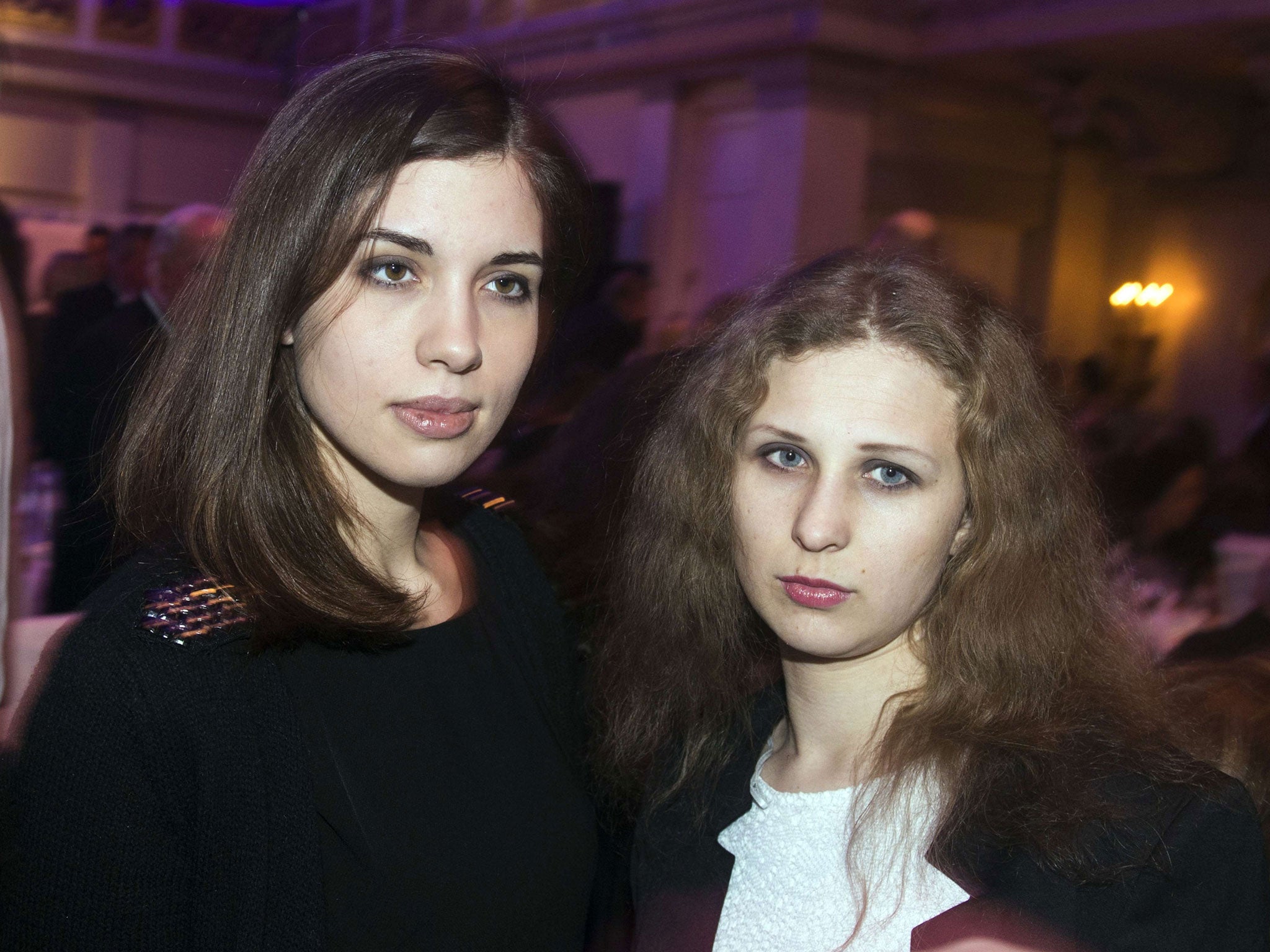Pussy Riot to sue Russian government for imprisoning them after anti-Putin 'punk prayer' church protest
The all-female punk band were sentenced for 'hooliganism motivated by religious hatred' in 2012

Pussy Riot are set to sue the Russian government at the European Court of Human Rights for imprisoning them for 21 months following a staged political protest in a church.
The all-female punk band were sentenced for "hooliganism motivated by religious hatred" in 2012 after they ran into Moscow's biggest Cathedral and sang a song calling on the Virgin Mary to get President Vladimir Putin out of office.
Two freed members of the band, Nadezhda Tolokonnikova and Maria Alyokhina, are seeking €120,000 (£71,000) each in compensation, as well as a further €10,000 in court fees.
The pair were released in December 2013 after a nationwide prison amnesty.
Pavel Chikov, head of human rights legal group Agora, will represent Tolokonnikova and Alyokhina in court and argues that their treatment during the prosecution process amounted to torture.
"They didn't get fair trial here in Russia so they want to get it finally in the European court of human rights," he told The Guardian.
"Plus they want this case to set a precedent that Russians can speak publicly on sensitive political issues, even if this speech is not supported by majority. This is a case about freedom of expression and fair trial first of all."
Since their release, the two musicians have continued to be active in opposing Russia’s strict laws on censorship and religion, among other things, as well as setting up their own prisoner’s rights group Zona Prava (‘Law Zone’).
"In our country, as long as cases of prisoners' rights' violation take place, we are sure that there will be a need for our organisation," Tolokonnikova said at the launch of the pressure group.
During her spell in prison, Tolokonnikova went missing for 10 days after she was moved from her prison colony in the Russian republic of Mordovia on 21 October 2013.
She had been on hunger strike over conditions in the prison.
A third member, Yekaterina Samutsevich, was given a suspended sentence and released in October 2012.
Join our commenting forum
Join thought-provoking conversations, follow other Independent readers and see their replies
Comments